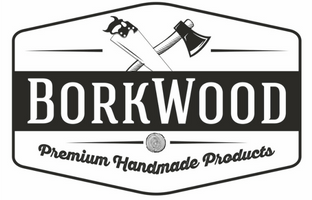The Future of Pre-Sales: Must-Have Skills & Training Programs for Modern Sales Teams
When it comes to building a successful sales pipeline, many businesses focus on closing deals, but the most critical phase is often overlooked: pre-sales. In today’s competitive market, how can your sales team stand out and ensure they’re ready to engage with leads right from the beginning? What skills do they need, and how can they stay ahead of the curve to close more deals in the future?
As we look toward the future of pre-sales, one thing is certain: the role of pre-sales professionals is evolving rapidly. To stay competitive, your sales team needs to be equipped with the right skills and training to handle new challenges and opportunities.
One of the most important steps in getting your sales team ready for success in 2025 and beyond is investing in the best pre-sales training course. This will empower your team with the skills and knowledge needed to make a real impact on your sales pipeline.
In this article, we’ll discuss why pre-sales training is critical, the skills your sales team will need, and the best training programs available to ensure your team is prepared to excel in the years ahead.
Why is Pre-Sales Training Crucial for Sales Teams in 2025?
In 2025, sales teams need to be more agile, tech-savvy, and customer-focused than ever before. Pre-sales training helps sales professionals understand how to engage prospects effectively, qualify leads, and deliver value from the very first interaction. Whether your business focuses on SaaS, B2B services, or products, having a pre-sales team equipped with the right skills is essential to boosting conversions and closing more deals.

The benefit of pre-sales training is twofold:
- Better Qualification: Pre-sales training enables your team to identify leads who are more likely to convert, saving time and resources for your business.
- Improved Customer Relationships: With the right training, sales professionals can foster relationships earlier in the sales cycle, building trust and rapport with prospects.
Ultimately, pre-sales training ensures that your sales team not only creates new opportunities but also nurtures leads in a way that sets up your business for long-term success.
What Skills Do Sales Teams Need to Succeed in Pre-Sales?
As the role of the pre-sales professional evolves, so does the skill set needed to excel. Here are the essential skills that will define successful pre-sales teams in 2025.
1. Understanding of Customer Needs and Pain Points
In today’s fast-paced business world, customers expect more than just a product or service they want solutions to their problems. Pre-sales professionals need to have a deep understanding of their customer’s pain points and be able to speak directly to those challenges.
- How to Ask the Right Questions: During the pre-sales phase, the focus should be on understanding the customer’s business and challenges. Training should cover how to ask targeted, open-ended questions that uncover the most critical pain points.
- Active Listening: It’s essential that sales professionals listen carefully to understand the real problems a customer is facing. The more they know, the better they can position their product or service as a solution.
For instance, if you’re selling a software solution, pre-sales professionals should understand the specific challenges a company faces in terms of efficiency or data management. By doing so, they can tailor their messaging to show exactly how the product will solve those problems.
Read also: Sales Proposals and the Role of Software
2. Technological Proficiency
The future of sales is heavily reliant on technology, and pre-sales professionals must stay ahead of the latest trends and tools. Whether it’s CRM software, sales automation tools, or virtual demo platforms, technological proficiency is essential.
- Mastering Sales Tools: The best pre-sales training courses provide hands-on experience with the latest CRM systems, prospecting tools, and analytics software.
- Data-Driven Decision Making: Pre-sales teams need to understand how to interpret data and use it to personalize sales strategies. This includes understanding lead scoring, tracking engagement, and adjusting tactics based on performance.
Technology plays a crucial role in lead generation, and pre-sales professionals who can harness these tools effectively will be far more successful at qualifying leads and engaging with prospects.
3. Product Knowledge and Demonstration Skills
A solid understanding of the product being sold is a must for pre-sales professionals. They must be able to effectively demonstrate how the product works and how it will benefit the customer. Pre-sales training should include:
- In-Depth Product Training: Sales teams need comprehensive product knowledge that goes beyond basic features to understand its application in solving real-world problems.
- Effective Demos: Pre-sales training courses should teach how to deliver compelling product demos that highlight key features and demonstrate value to the prospect.
Being able to confidently explain how a product or service will meet the prospect’s needs and deliver tangible results is key to warming up cold leads.
4. Communication and Negotiation Skills
In pre-sales, communication is everything. Your sales team needs to be able to present information in a clear, concise, and engaging way. Furthermore, they should have the ability to negotiate effectively and manage expectations.
- Clear Messaging: A pre-sales professional needs to be able to explain complex information in simple terms, focusing on how the solution fits the customer’s unique needs.
- Negotiation Techniques: They should also be skilled in managing objections and negotiating terms without jeopardizing the integrity of the deal.
Sales professionals who can communicate the value of a product and handle negotiations effectively are much more likely to move leads through the funnel and convert them into loyal customers.
5. Emotional Intelligence
Emotional intelligence (EQ) is an often-overlooked skill in pre-sales, but it’s vital for building relationships and engaging prospects. Pre-sales professionals with high emotional intelligence are able to:
- Understand Prospect Emotions: They can read a prospect’s mood or emotional state and adjust their approach accordingly.
- Build Trust and Rapport: EQ helps sales professionals build trust by being empathetic and showing that they care about the client’s needs.
In 2025, customers expect personalized experiences, and emotional intelligence helps pre-sales teams provide just that.
Read also: Tractor Supply Sales Associate Job Description
What Makes a Great Pre Sales Training Course?
To help your team develop the skills needed to succeed, investing in the best pre-sales training course is a smart decision. A well-structured course should cover everything from product knowledge to customer engagement, providing both theoretical knowledge and practical, real-world experience.
Here’s what to look for when choosing a pre sales training program:
- Comprehensive Curriculum: The course should cover the full pre-sales journey, including lead qualification, prospecting, needs assessment, product demonstrations, and objection handling.
- Hands-On Experience: Training should include interactive activities, case studies, role-playing, and real-life scenarios that help your team apply what they’ve learned.
- Customizability: Look for courses that can be tailored to your business’s specific industry, product, and customer base, ensuring that the training is relevant.
- Ongoing Support: A great training program doesn’t end when the course finishes. Ongoing support, access to resources, and opportunities for continued learning are essential for long-term success.
Some of the best pre-sales training courses offer personalized feedback, helping your team refine their approach and improve their performance.
How Can Pre-Sales Training Impact Sales Success?
Investing in pre-sales training can lead to:
- Increased Conversion Rates: By equipping your team with the skills to qualify leads more effectively, engage in meaningful conversations, and demonstrate product value, the chances of converting leads into customers increase significantly.
- Improved Efficiency: With pre-sales training, your sales team can identify which prospects are worth pursuing, ensuring that time is spent on leads with the highest potential.
- Stronger Relationships: With better communication skills, product knowledge, and emotional intelligence, your team can build stronger, more trusting relationships with prospects.
Conclusion
As we look to 2025, the future of pre-sales is all about equipping your team with the right skills and knowledge. The best pre-sales training course provides your sales team with the tools they need to succeed, from understanding customer pain points to mastering product demos and emotional intelligence. With the right pre-sales training, your team can move leads from cold to warm, significantly improving conversion rates and sales performance.
By focusing on these critical skills and investing in the right training programs, you’re setting your sales team up for success. The future of pre-sales is bright, and with the proper training, your business can achieve long-term growth and success.


